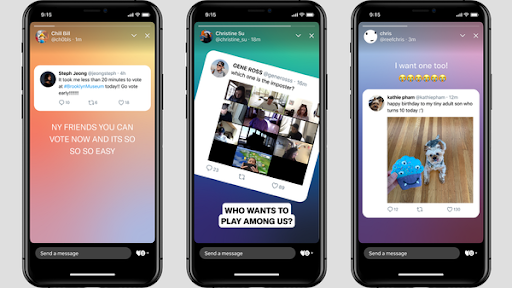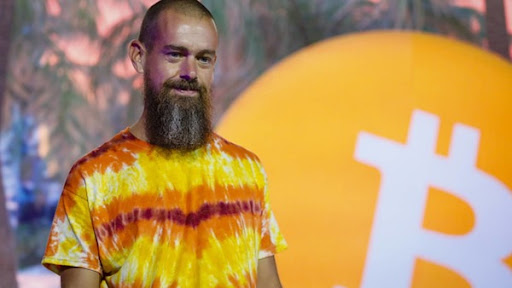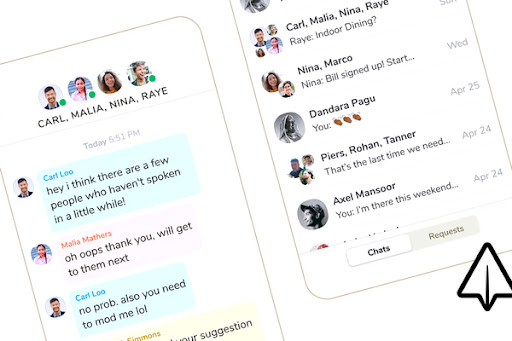Top of Mind. Happy Sunday from the ocean! I’m writing this week’s newsletter on a yacht off the coast of Southampton, where I’m learning to sail.
This week, I’m mulling over the demise of a product. How a tech company is turning on its employees, and a multi-hyphenate CEO making bold bets.
Big Tech This Week:
- Twitter’s Fleets is…… fleeting
- Apple versus employees
- Jack Dorsey bets big on Bitcoin
3 big things…
Twitter sunsets Fleets

The Short: Twitter announced it was sunsetting its ephemeral product Fleets after 8 months. The news of Fleets’ demise was not as bad as the fleeting jokes that followed the announcement.
Twitter designed fleets to share fleeting thoughts, which expires after 24 hrs. Unfortunately, the impact the Stories-styled format had on Instagram and LinkedIn didn’t quite make its way to Twitter.
In Twitter’s words:
We hoped Fleets would help more people feel comfortable about joining the conversation on Twitter. But, in the time since we introduced Fleets to everyone, we haven’t seen an increase in the number of new people joining the conversation with Fleets like we hoped.
Fleets was a tough sell: Twitter added Fleets to its suite of new product offerings. But, compared to its audio product Spaces, Fleets didn’t catch on as quickly as expected.
Here’s why:
- Limited text formatting options
- Pre-2010 gif and sticker design (at least that is what it felt like)
- Bland typeface design
In contrast to Snapchat, Instagram and LinkedIn’s Stories features:
- Multiple text formatting features
- Drop shadows
- Exciting animated features
- Emoji and sticker trays
In addition, Fleets’ launch was janky. App updates landed late – emojis and gifs were added months after launch, making it harder to attract users after initial impressions.
Plus, most users on Twitter used Fleets for the exact opposite of why it was created – to repost Tweets. For a product intended for creative expression, users were not given the tools to do so.
Looking ahead: Text formatting options, stickers, and animated images might not seem like an important part of a product, but Snapchat, Instagram, and LinkedIn considered it important enough for broader investments.
Final thought: Fleets’ go-to-market strategy seems similar to that of its audio product Spaces and paid feature Twitter Blue.
Spaces isn’t a far more superior product to Clubhouse or Spotify’s Greenroom. It just happens to be built on a core product with millions of engaged users. If Spaces was a standalone app, it would have met the same demise as Fleets.
On Twitter Blue, I wrote about the lacklustre launch features and gave Twitter ideas on features people would pay for. Twitter Blue’s launch in Canada and Australia must not be meeting expectations, as Kayvon Beykpour, Twitter’s Head of Product, recently asked if users will pay for an ephemeral version of the edit button.
Twitter is one of my favourite products, but it needs to do better with product launches. Go big or sunset.
Apple Versus Employees

The Short: Some Apple employees are contemplating leaving the company following a request by Apple to return to the office three days out of the week, in a hybrid model intended to see staff spend more time in the office.
Tim Cook:
For all that we’ve been able to achieve while many of us have been separated, the truth is that there has been something essential missing from this past year: each other. Video conference calling has narrowed the distance between us. But there are things it simply cannot replicate.
No concessions: Employees pushed back following Apple’s insistence on the mandatory hybrid model, especially since companies like Facebook and Google give employees carte blanche on remote work. In addition, employees wrote a letter to Tim Cook to rethink the hybrid model, but the company doubled down on this model, stating their decision was final.
It goes deeper… Affected employees said Apple declared only employees with documented medical conditions would be granted location-flexible options. To prove this, Apple asked employees to fill out a health authorization form, which grants the company access to personal health records. It’s no wonder employees are quitting.
Final thought: Apple champions itself as a beacon of user privacy but approaches employees personal information differently. It raises a lot of questions about Apple’s motives for requesting employee health records. You either trust your employees, or you don’t.
Apple must turn the mirror on itself and see the irony in how it attacks tech companies on their handling of user data. And how it, in turn, demands employees cede their medical records for the privilege to work from home.
Jack Dorsey bets big on bitcoin

The Short: Jack Dorsey believes bitcoin will become the world’s single currency by 2031. To back this up, he’s made significant investments in building out a decentralized financial platform through Square, his second company.
Big investments:
- Square spent $36.6 million on its payments product Cash App to offer bitcoin support on the app.
- Square expanded bitcoin support in all 50 states in the US.
- Square is building a hardware wallet for bitcoin.
What this means: The hardware wallet isn’t Dorsey’s first crypto-enabled product. Cash App started as a peer to peer payments service but expanded into bitcoin transactions.
Building a hardware wallet will make bitcoin mainstream as more jurisdictions worldwide endorse it. The jury’s still out on how the hardware wallet would operate or the possibility of a Cash App integration. However, I reckon it will be designed as a master key to a user’s digital assets, protect bitcoin from hacks and theft, and grant stronger ownership of transaction data.Final thought: Announcements like these are great for cryptocurrency advancements, especially as some governments grapple with what it means for their financial systems. Square’s venture into decentralized financial services is ultimately good for consumers and creates broader acceptance of cryptocurrency.
NEW FEATURE SPOTLIGHT
Backchannel

Clubhouse launched its direct messaging feature Backchannel to iOS and Android users this week.
First impressions:
- Users can send texts and links to groups, or one on one messaging
- Users can have private discussions during a live room
- Users can receive message requests from non-followers, where they can be rejected or approved
- Users can copy and report messages
Design: Backchannel retains the simplicity of Clubhouse, which I like. However:
- No image or video functionality
- Gifs don’t work on Backchannel
- Group calls are not enabled
- Direct replies in groups are not enabled
Verdict: Anytime Clubhouse releases a new feature is a good day because they are notorious for lagging behind product rollouts. I’m excited about this launch, and it would help retain users on the app. Users now have easier access to chat without leaving the app to Twitter or Instagram for private messaging like in the past.
I wish it launched earlier.
INDUSTRY TRENDS
I enjoyed reading these amusing stories from the week – the anonymous winner of Jeff Bezos’ $28 million Space auction asked for a raincheck due to scheduling conflicts on Earth. Google releases updated emojis. Fun! Facebook bets big on creators.
- I’ll like to see the calendar of Blue Origin’s anonymous winner for deciding not to go to Space with Bezos due to scheduling conflicts.
- Google gives emojis a much-needed makeover.
- Facebook will pay $1 billion to creators over the next year and a half.
If you liked this edition, kindly help grow this newsletter by spreading the love – talk about the topics, share them, forward them. Tell it on the mountain.
That’s it. Have a delightful week. See you next Sunday!

